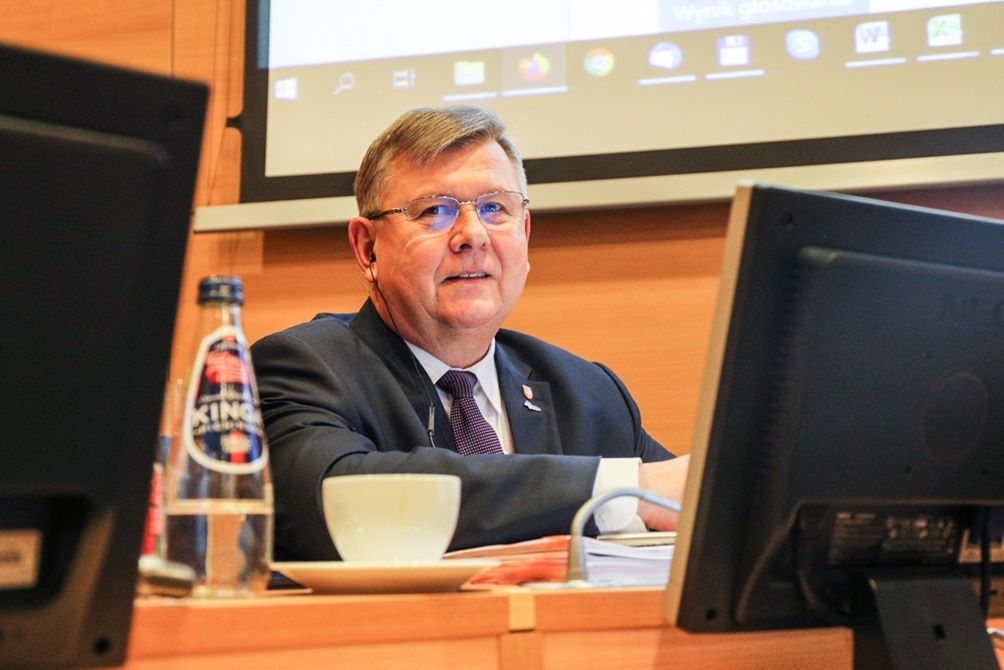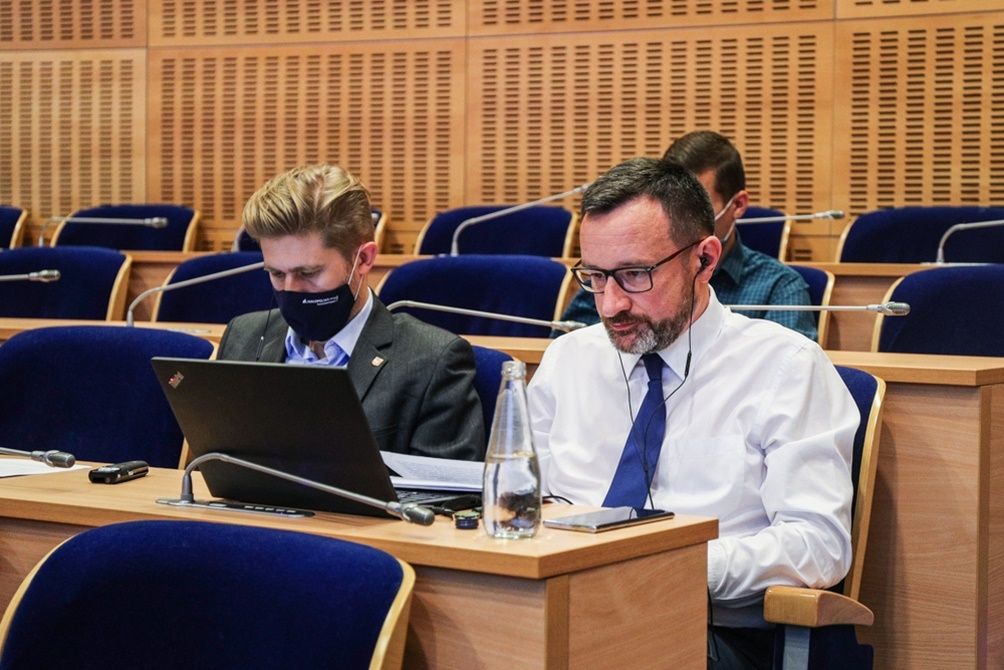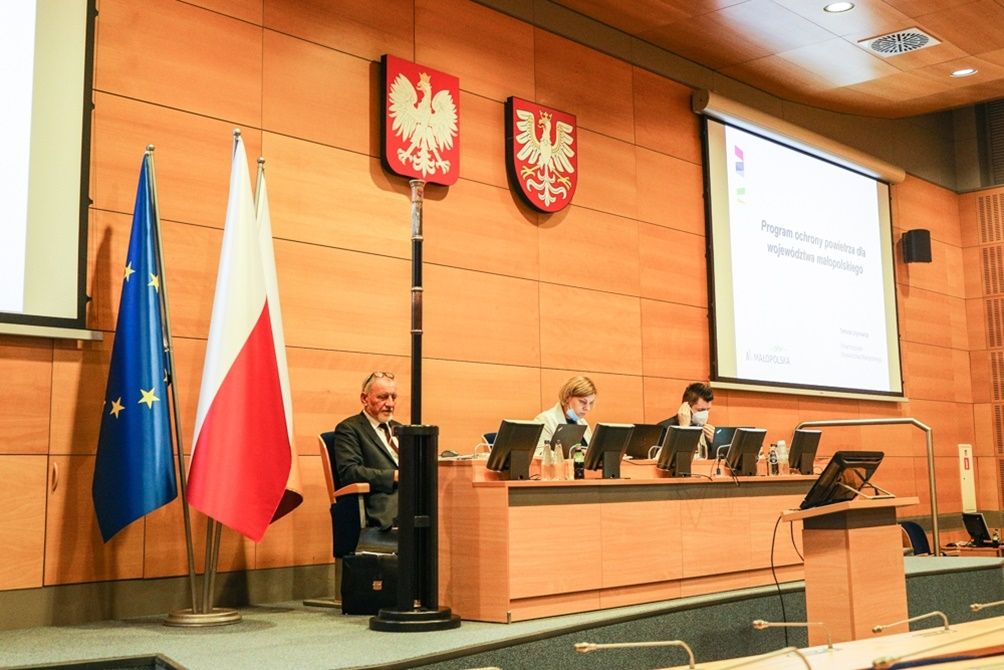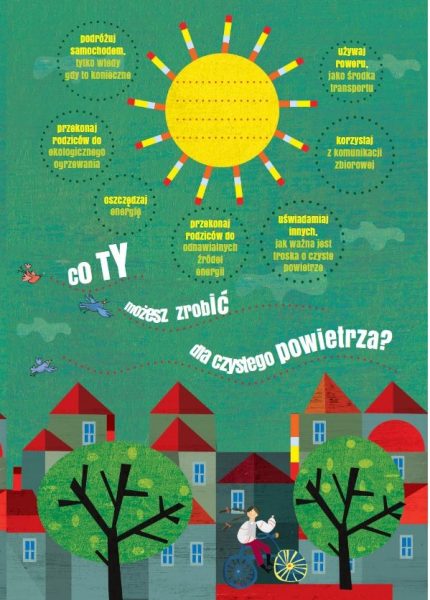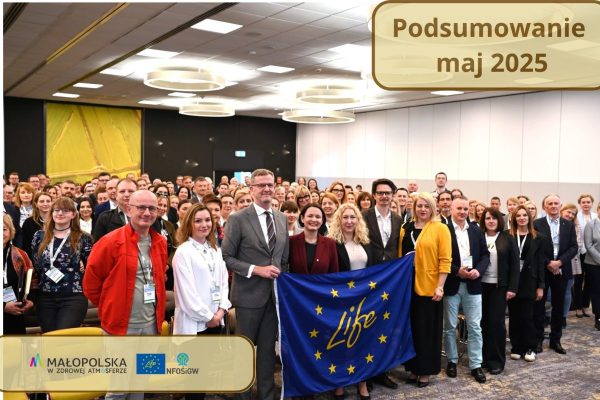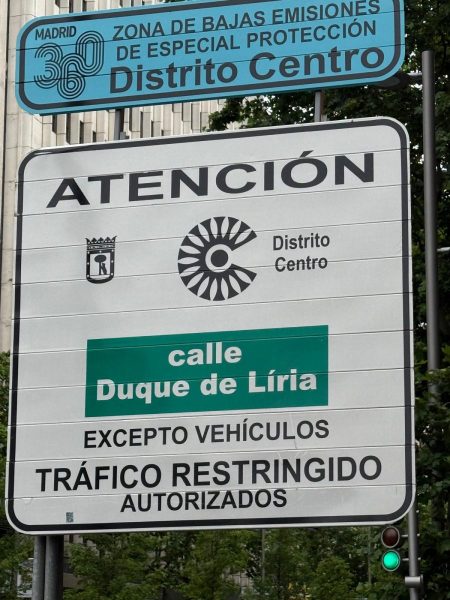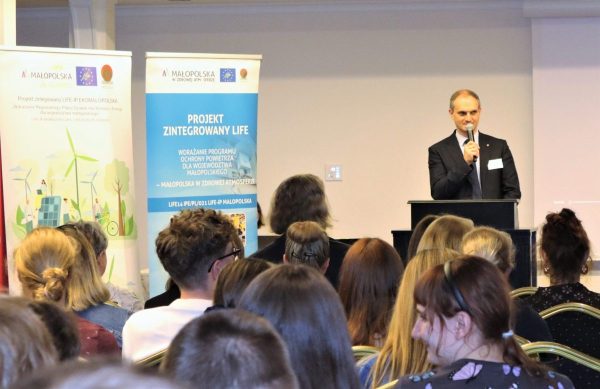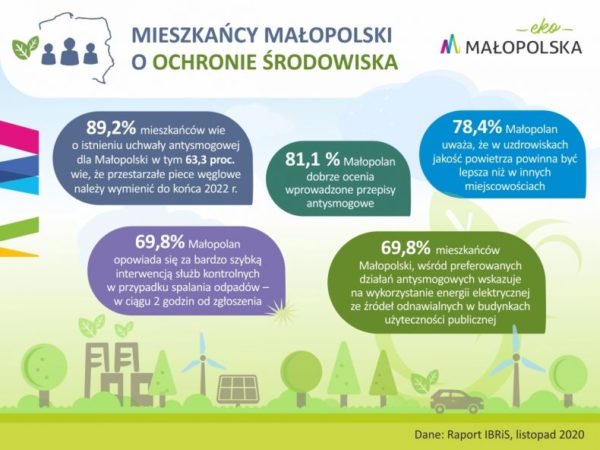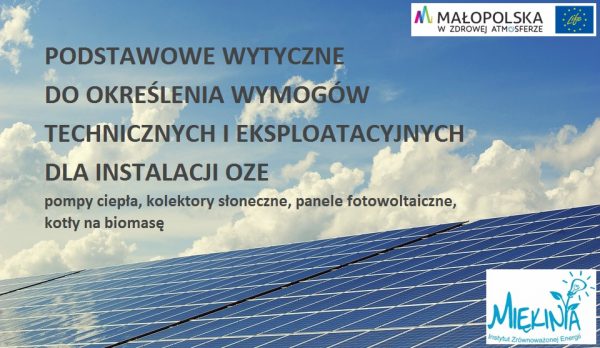The next step towards the adoption of the Air Quality Plan
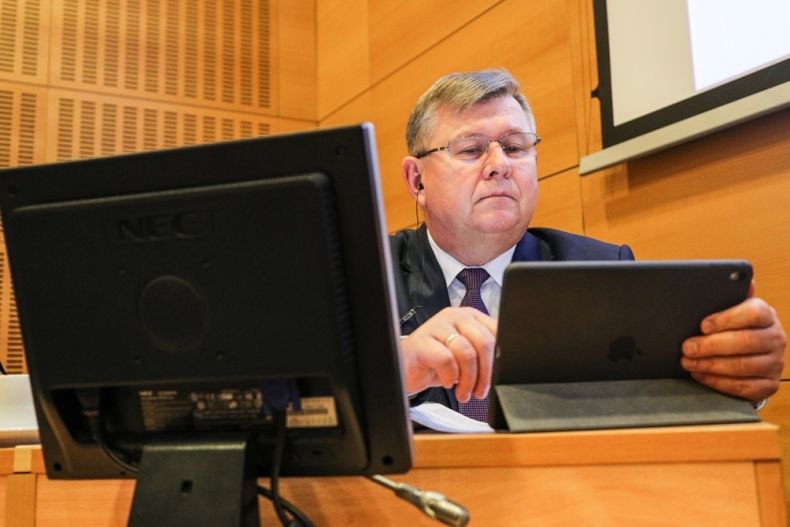
After a break in the session announced on 31st August 2020, the Chairman of the Sejmik of the Małopolska Region, prof. Jan Tadeusz Duda, resumed the remote session of the Sejmik of the Małopolska Region on Wednesday 2nd September XXIV. The first and especially awaited by many residents point of the session was dedicated to the Air Quality Plan for the Małopolska Region – 1 st Reading.
Many councillors, local government officials and experts took part in a few hours’ discussion on the Air Quality Plan. Voices were dominating about the need to introduce the proposed changes, the historical necessity and the obligation to modernise the country, but there were also criticisms. Many times during the session it was pointed out that the obligations resulting from the implementation of the programme cannot affect the contents of the budget and the quality of life of people who are in a worse financial situation.
I would like to thank Marshal Tomasz Urynowicz very warmly. I would also like to thank all the employees who took part in this long marathon to reach the first reading of the Air Quality Plan for the Małopolska Region. I would also like to thank all those who took part in this process outside our office. Not only those who agreed to different solutions. I would also like to thank all those who proposed solutions which did not necessarily comply with the provisions of the programme. Every opinion is valuable. I would like to make a declaration at this point in time on behalf of the Board of the Voivodship that all these comments which have been made during today’s debate will be examined very carefully by the Board. These proposals, which are reasonable proposals, we will try to ensure that they are also included in the programme. In a month’s time, if there is no obstacle, the programme will be presented to the Sejmik for discussion and voting
– said Marshal Witold Kozłowski.
Ambitious and multi-faceted assumptions of the Air Quality Plan for the Małopolska Region, which together with the government’s air quality plans is a system of interconnected vessels, were outlined by Deputy Marshal Tomasz Urynowicz during the Wednesday remote session.
After six months of preparation, we present to you a document entitled “Air Quality Plan for the Małopolska Region” with the awareness of the importance and responsibility for the policy contained in this document
– said Deputy Marshal Tomasz Urynowicz.
Małopolska sets the national standard for Air Quality Programmes!
Deputy Marshal Tomasz Urynowicz referred to the speech of Deputy Prime Minister and Development Minister Jadwiga Emilewicz. She made her speech on Monday, during the first part of the session. At that time, the Deputy Prime Minister paid attention to the great importance of the solutions developed so far in Krakow and Małopolska. Małopolska has become a determinant of national air protection standards.
The Deputy Marshal also gave the councillors, participants and viewers the content of a letter from the Ministry of Development transmitted on the Internet. The document noted that the actions taken in Kraków and Małopolska bring positive effects not only in the form of local air quality improvement, but also have an impact on other regions of the country. “Currently, in 13 voivodships, anti-smog resolutions have already been adopted, created on the basis of model resolutions initiated in Krakow and Małopolska. As the Ministry of Development, we also positively evaluate the main directions of activities of the Air Quality Plan for the Małopolska Region. An important element of this Programme is the broad involvement of municipalities in the implementation of the Clean Air Programme. Also support for people affected by energy poverty with the use of the Stop Smog programme” – was emphasised.
In the correspondence from the Ministry of Development it was mentioned that it is important to prioritise the use of renewable energy sources. Especially in the case of public buildings. And also planning an inventory of heating sources for buildings using the Central Building Emissions Register prepared at the national level.
The Air Quality Plan is a formal and legal requirement which must be adopted by regional governments. It is primarily linked to the implementation of EU policies. Most importantly, it is also a document which sets out the most important directions, in a vector nature, indicating intentions. It does not refer to detailed solutions. In our draft, which is different from previous projects, because after all, every three years such an air quality plan is prepared, it probably arouses as much controversy, but why is it special? Well, its framework is enshrined directly in the Environmental Protection Act. The method of preparation, the general boundaries and horizons indicated in the programme are primarily related to the amendment of the Environmental Protection Act
– said Deputy Marshal Tomasz Urynowicz
Air quality in the Małopolska Region requires resolute actions!
In accordance with the Environmental Protection Law, which the Deputy Marshal underlined in his speech. The aim of the Programme is to improve air quality in the shortest possible time. According to the judgment of the Court of Justice of the EU, issued due to the fact that air quality standards in Poland have been exceeded, these actions must be adequate to the level of pollution and are to achieve acceptable levels as soon as possible. In accordance with the amendment of the Environmental Protection Law, the voivodships have time until 30th September 2020 to adopt new air quality plans.
The challenges we face and the air quality in the Małopolska Region requires bold actions
– said Deputy Marshal Tomasz Urynowicz
In 2013-2018, 43.6 thousand boilers and furnaces using solid fuels were eliminated in the Małopolska region. More than half of these furnaces were decommissioned in Krakow only (22.5 thousand). The improvement of air quality in Kraków and Małopolska is particularly visible in the heating period from October to March. The average concentration of PM10 dust between the winter season 2014-2015 and the last season 2019-2020 dropped by 30% in Małopolska, while in Krakow by as much as 45%.
This is one of the effects and successes of a consequent environmental policy, especially the most courageous direction already taken by other regional governments, which was the implementation of the anti-smog resolution – said Tomasz Urynowicz.
– said Tomasz Urynowicz
The most important actions identified in the Air Quality Plan:
There is still a long way to go to the ideal. The amount of harmful substances continues to exceed the permissible levels in all air protection zones. In the opinion of the General Inspector of Environmental Protection for 2018 and 2019, the permissible and target levels of PM10, PM2.5, benzo(a)pyrene and additionally nitrogen dioxide in Krakow were exceeded.
Action 1. proposed in this situation in the Air Quality Plan, as a task for all public institutions, is primarily to provide financing from 1st January 2022 exclusively for installations fuelled by biomass (excluding projects in progress), and also – financing from 1st January 2023 exclusively for installations fuelled by biomass with emissions of particles up to 20 mg/m³. Additionally, preferences should be provided in the form of higher co-financing for heat pumps, photovoltaic panels, solar collectors, heating installations connected to geothermal heat plants and biomass boilers with dust emission up to 20 mg/m³.
What is the purpose of these actions? First and foremost, full implementation of the so-called anti-smog resolutions for Małopolska and Kraków. The second is improving the energy efficiency of buildings so that we do not simply throw this energy into the air. And also increasing the use of renewable energy sources
– said Deputy Marshal Tomasz Urynowicz
The Government’s Clean Air Programme, as the most important, main source of funding for environmental activities in the near future, providing preferential funding for renewable energy sources, also indicates that the funding granted must comply with the provisions of the Air Quality Plan for a particular voivodship. – Therefore, the government programme is adjusted to the requirements proposed in the Air Quality Plan – said the Deputy Marshal.
The Air Quality Plan specifies, i. a. tasks for municipalities:
Firstly, creating and maintaining a service point for the government’s Clean Air Program. The total value of this program is PLN 103 billion. Małopolska could allocate approximately PLN 7 billion for thermo-modernization activities, including replacement of furnaces
– said Deputy Marshal Tomasz Urynowicz.
An Ecomanager in every municipality!
Another requirement is to employ an eco-manager. The Deputy Marshal reminded us that the eco-managers are financed under the LIFE programme, which has been acquired by the Malopolska Region. – Another LIFE programme, this climatic one, also allows for the employment of an eco-manager in poviats – he added.
The benefits are visible. Those municipalities where the eco-manager is employed have so far replaced many more furnaces than others. Between 2016 and 2019, the municipalities have replaced as many as 32,289 boilers in the LIFE programme (55 municipalities), while the remaining ones (127) have replaced 16,165 old high-emission devices.
The Air Quality Plan also assumes that the commune will carry out at least once a year an information campaign on the requirements of the Anti-smoke Resolution and the forms of co-financing available from public funds for the replacement of furnaces. It also provides for an inventory of heat sources and renewable energy installations by the end of June 2022 (at least 90%). This is also related to the planned actions of the government within the Central Building Emissions Register.
System and intervention controls!
This programme provides for intervention and system checks on compliance with air protection regulations. An example of this is Eco-intervention, an innovative solution implemented a year ago in Małopolska. – An easy, simple, intuitive system, which allows each of us to report environmental damage using a smartphone. We want this scheme of intervention and system controls to become a certain standard. It is already a formal and legal requirement under the Environmental Protection Act, but this provision has, unfortunately, the problem that it is difficult to implement it, although it is an obligation. It is the duty of local authorities to carry out these controls – added the Deputy Marshal.
There have been 2178 requests for intervention since March 2020. As many as 699 of them were not answered by the competent authority (mainly the municipality). – This needs to be corrected,’ noted the Deputy Marshal.
This programme involves the carrying out of scheduled inspections by the municipal or inter-municipal guards, authorised staff or in cooperation with the police, in respect of compliance with air protection regulations. The number of buildings inspected depends on the number of inhabitants of a given municipality. – Therefore, it is not a challenge beyond measure. It is a challenge adequate to the real size of a given commune – said the Deputy Marshal.
The municipalities should prepare an internal procedure for the inspecting of furnaces in order to comply with the anti-smog resolution and the ban on burning waste by 30 September 2021.
One of the key assumptions of the programme is also to support the inhabitants of the municipality affected by energy poverty. – The government’s Stop Smog programme helps to achieve this. To make this happen, an inventory of the programme must be carried out. We need to have information from the municipalities on how many inhabitants can be covered by this type of aid,‘ – noted Deputy Marshal Tomasz Urynowicz.
It is recommended for municipalities to allocate at least 1% of their own income from 2021. They will be allocated to activities related to air protection. Also the use of electricity from renewable energy sources in public buildings (the target is 100%).
Tasks for poviats:
The programme also includes, proposed tasks for poviats. Including information on current air quality on the official website of the poviat until 31st October 2020, as well as links to the Eco-intervention application and the Clean Air Programme.
In addition: employment until 30th June 2021 and maintaining the position of Climate Eco-manager, as well as conducting information campaigns on the requirements of anti-smog resolutions as part of issuing building permits and accepting building applications. It was also recommended to allocate at least 0.5% of own revenues to activities related to air protection from the poviat’s budget from 2021.
An important element are also actions to reduce emissions from transport. One of the goals is to achieve the level of permissible nitrogen dioxide in Krakow. Eliminating vehicles that do not comply with exhaust emission regulations from traffic. And also to promote sustainable forms of transport: public transport, bicycles and pedestrian traffic.
An important element are also actions to reduce emissions from transport. One of the goals is to achieve the level of permissible nitrogen dioxide in Krakow. Eliminating vehicles that do not comply with exhaust emission regulations . And also to promote sustainable forms of transport: public transport, bicycles and pedestrian traffic.
The Air Quality Plan also aims to reduce harmful emissions from industry. This is to be achieved, among other things, through regular checks on economic activity: planned and interventional. It is important to have universal access to information – providing information about industrial accidents resulting in the emission of pollutants, informing about issued decisions and permits for the emission of pollutants for plants located in a municipality. It was also proposed to create a platform for collecting data on industrial emissions with public access.
All these activities have a specific reason and purpose. According to scientific estimates, air pollution is responsible:
- 43% of deaths due to respiratory diseases,
- 29% of lung cancer deaths,
- 25% of deaths due to cardiovascular diseases,
- 24% of deaths from strokes…
The air pollution and COVID-19!
As Deputy Marshal Tomasz Urynowicz mentioned, the results of analyses carried out by Harvard University scientists have shown that even a small increase in exposure to air pollution leads to a significant increase in the risk of death from COVID-19 disease. 285/5000
The analysis of the Małopolska Regional Development Observatory shows that diseases resulting from air pollution cause Małopolska residents to lose over 2 million working days a year. And the average cost of lost working days related to gross salary is PLN 400 million per year.
Poor air quality can also discourage tourists from visiting the region in winter. Representatives of the tourist industry fear that without a solution to the problem of poor air quality they may lose more and more clients. The reason for this is the growing awareness and expectations in this regard. It is estimated that the external costs resulting from the current level of pollutant emissions may reach PLN 6.7 billion on a voivodship scale. On the other hand, savings resulting from the implementation of the Program – reduction of emissions – may amount to PLN 1.6 billion annually.
Deputy Marshal Urynowicz also pointed out, i. a. the important role of the renewable energy sector in the current and future structure of the labour market. This is what the national forecast of professions, of particular importance for the development of the country, carried out by the Ministry of National Education, provides. In the Małopolskie Voivodship, the forecast contains a list of 74 important professions. They include e.g. the demand for technicians of renewable energy equipment and systems.
European Green Deal!
The European Green Deal, and especially the so-called ‘renovation wave’ of public and private buildings, is one of the main objectives of the European plan to decarbonise the economy and achieve climate neutrality. Construction is responsible for 36% of total greenhouse gas emissions in Europe and 40% of energy consumption. It is estimated that for every EUR 1 million invested in the renovation of buildings in EU Member States, between 13 and 28 jobs will be created (18 jobs on average). For Poland, some analyses indicate that this figure may be as high as 42 new jobs.


